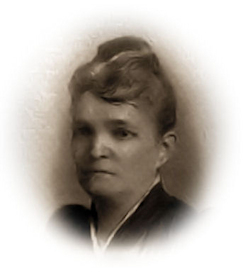March 20th.—The slow shelling of Vicksburg goes on all the time, and we have grown indifferent. It does not at present interrupt or interfere with daily avocations, but I suspect they are only getting the range of different points; and when they have them all complete, showers of shot will rain on us all at once. Non-combatants have been ordered to leave or prepare accordingly. Those who are to stay are having caves built. Cave-digging has become a regular business; prices range from twenty to fifty dollars, according to size of cave. Two diggers worked at ours a week and charged thirty dollars. It is well made in the hill that slopes just in the rear of the house, and well propped with thick posts, as they all are. It has a shelf, also, for holding a light or water. When we went in this evening and sat down, the earthy, suffocating feeling, as of a living tomb, was dreadful to me. I fear I shall risk death outside rather then melt in that dark furnace. The hills are so honeycombed with caves that the streets look like avenues in a cemetery. The hill called the Sky-parlor has become quite a fashionable resort for the few upper-circle families left here. Some officers are quartered there, and there is a band and a field-glass. Last evening we also climbed the hill to watch the shelling, but found the view not so good as on a quiet hill nearer home. Soon a lady began to talk to one of the officers: “It is such folly for them to waste their ammunition like that. How can they ever take a town that has such advantages for defense and protection as this? We’ll just burrow into these hills and let them batter away as hard as they please.”
“You are right, madam; and besides, when our women are so willing to brave death and endure discomfort, how can we ever be conquered?”
Soon she looked over with significant glances to where we stood, and began to talk at H.
“The only drawback,” she said, “are the contemptible men who are staying at home in comfort when they ought to be in the army if they had a spark of honor.”
I cannot repeat all, but it was the usual tirade. It is strange I have met no one yet who seems to comprehend an honest difference of opinion, and stranger yet that the ordinary rules of good breeding are now so entirely ignored. As the spring comes on one has the craving for fresh, green food that a monotonous diet produces. There was a bed of radishes and onions in the garden, that were a real blessing. An onion salad, dressed only with salt, vinegar, and pepper, seemed a dish fit for a king, but last night the soldiers quartered near made a raid on the garden and took them all.
Note: To protect Mrs. Miller’s job as a teacher in post-civil war New Orleans, her diary was published anonymously, edited by G. W. Cable, names were changed and initials were generally used instead of full names—and even the initials differed from the real person’s initials. (Read Dora Richards Miller’s biographical sketch.)
